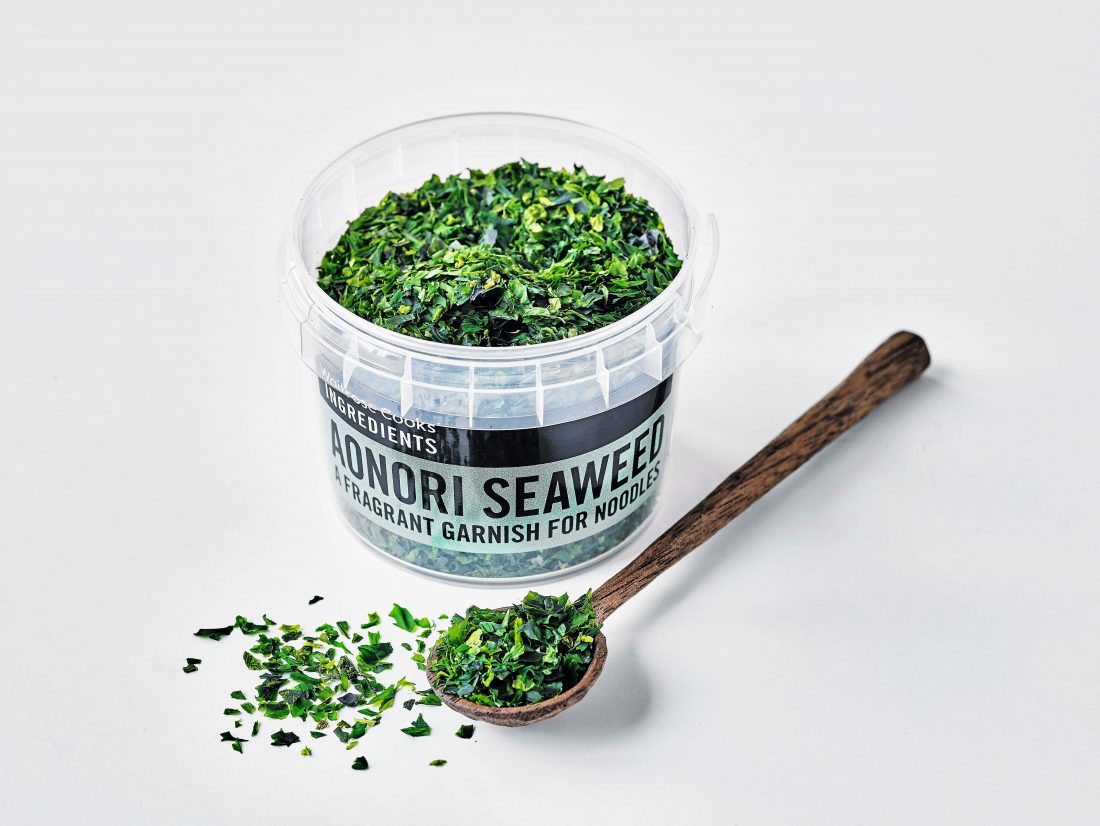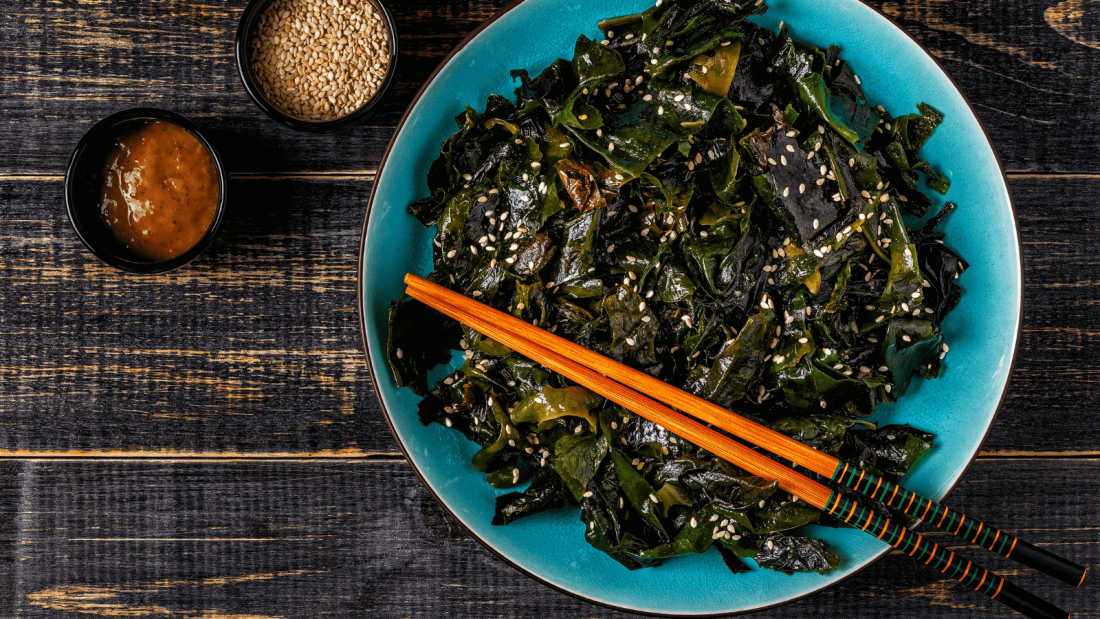Versatile, tasty and fast becoming a store cupboard staple, the humble seaweed is hotly tipped to become the 2021 superfood item for your shopping list.

With sales increasing by 71% since 2018, Waitrose & Partners have declared seaweed to be the superfood of the year in the December 2020 edition of their magazine.
Health-conscious cooks are adding it to their stir fry to give some crunch, sprinkling it on a salad for some added vitamins or chomping on it as a healthy and delicious snack to see them through the day.
Seaweed has even made its way on to high street food chains with Itsu’s crispy seaweed thins selling 12 packs every minute with the sea salt multipack making into Amazon’s top 100 selling products last year.
It may surprise you to learn that seaweed has a number of different textures. An article in Huffpost highlighted its versatility, describing as follows:
“Dulse is a red seaweed that is soft and chewy which can be used in dried flake form to flavour salads and soups.
Kelp is a brown/ green seaweed that is naturally high in iodine.
Nori is a dry, brittle sheet of seaweed used for rolling sushi.
Wakame is small and dark green, used in miso soup and Japanese Seaweed salad.
Sea spaghetti is mild-tasting and absorbs flavours.”
Aside from its foodie benefits, there are a number of health benefits to eating this superfood too. In his guide to fight back against coronavirus last June, Dr Michael Mosley recommended eating seaweed as a way to getting a healthier gut.
So, what other health and nutritional benefits are there to be gained from eating this superfood?

It is highly nutritious
Seaweed contains a good supply of protein, carbohydrates, fibre, minerals and polyunsaturated fatty acids. There are also vitamins A, B, C and E as well as iron and iodine. There are also antioxidants in seaweed, which protect the body from oxidative stress, and it is anti-inflammatory and anti-microbial.
It may help with thyroid function
The thyroid gland controls and releases hormones for energy production, growth, and cellular repair.
The thyroid needs iodine to function correctly, but the amount that a person requires depends on the state of the thyroid.
People may be able to prevent or improve hypothyroidism by ensuring that their diet contains sufficient iodine. This is why seaweed helps with this, it is very rich in iodine. According to a study in the Journal of Food and Drug Analysis, kombu is the richest source of iodine, followed by wakame and nori. Kelp powder is also a significant source.
Do note that the type of seaweed and the location it was grown in can alter iodine contents.
Studies show it may help gut health
As mentioned above seaweed may be an ideal food for the gut. Authors of a study in the Journal of Applied Phycology report that algae tend to contain high amounts of fibre, which may make up 23–64 % of the algae’s dry weight.
This fibre can help feed the gut’s bacteria. Intestinal bacteria break fibre into compounds that improve gut health and the overall health of the immune system.
Adding seaweed to the diet may provide the body with plenty of gut-healthy prebiotic fibre, which can help with issues such as constipation or diarrhoea.
It may help with weight loss
The fibre in seaweed may benefit people who are trying to lose weight. Fibre helps a person feel full, but it contains very few or no calories itself.
According to the study in Marine Drugs, a high amount of dietary fibre delays stomach emptying which makes you feel full for longer. As a result, the stomach sends none or less signals of hunger to the brain for a longer time, which may help prevent overeating.
So, are you stocking up on seaweed on your next food shop?
Simi Kaur contributed to this article.












